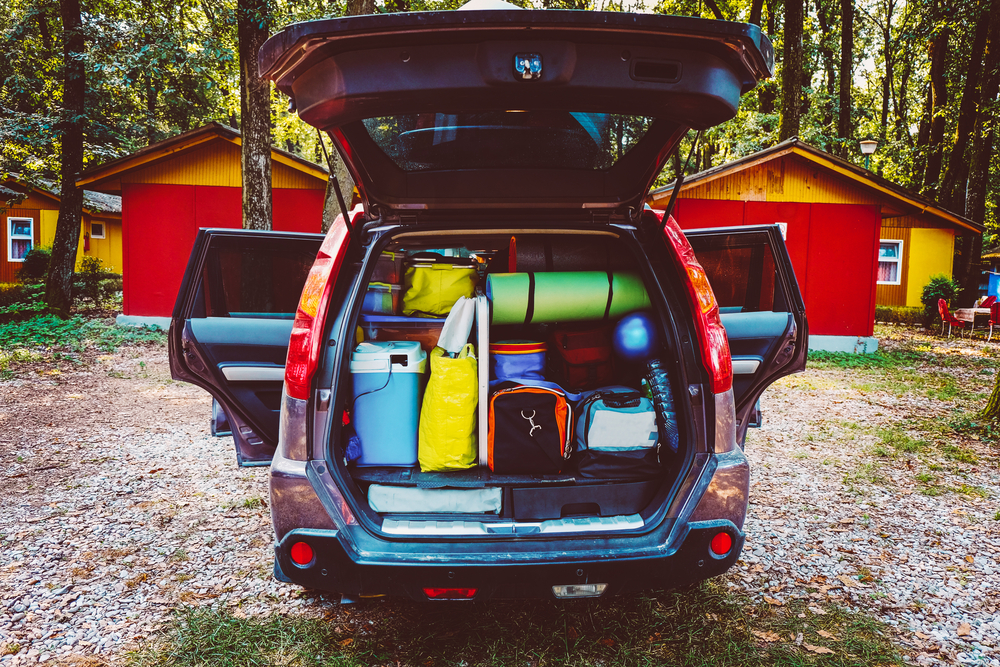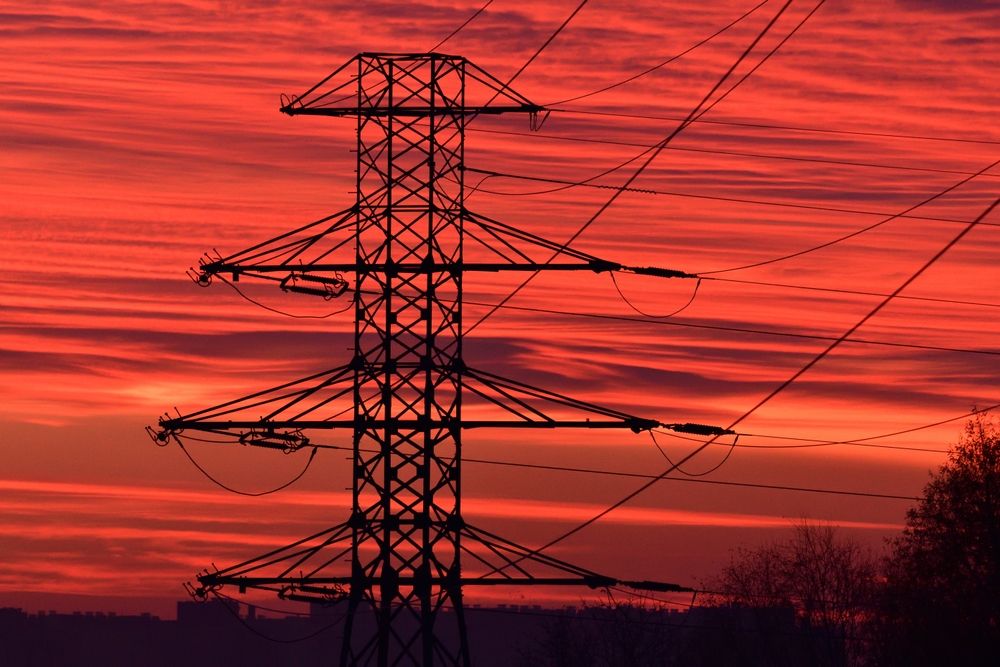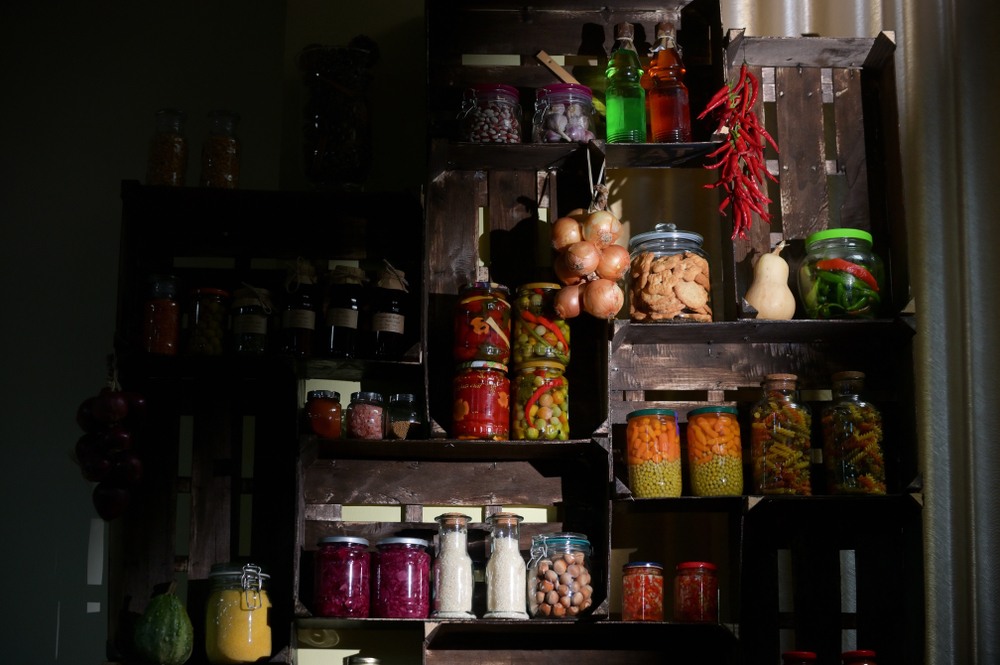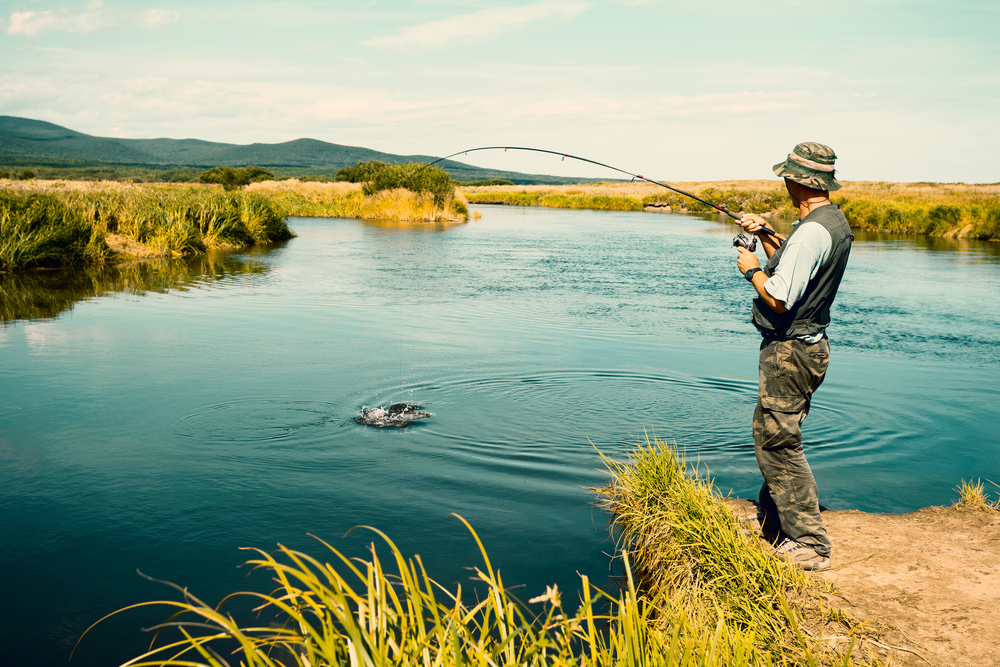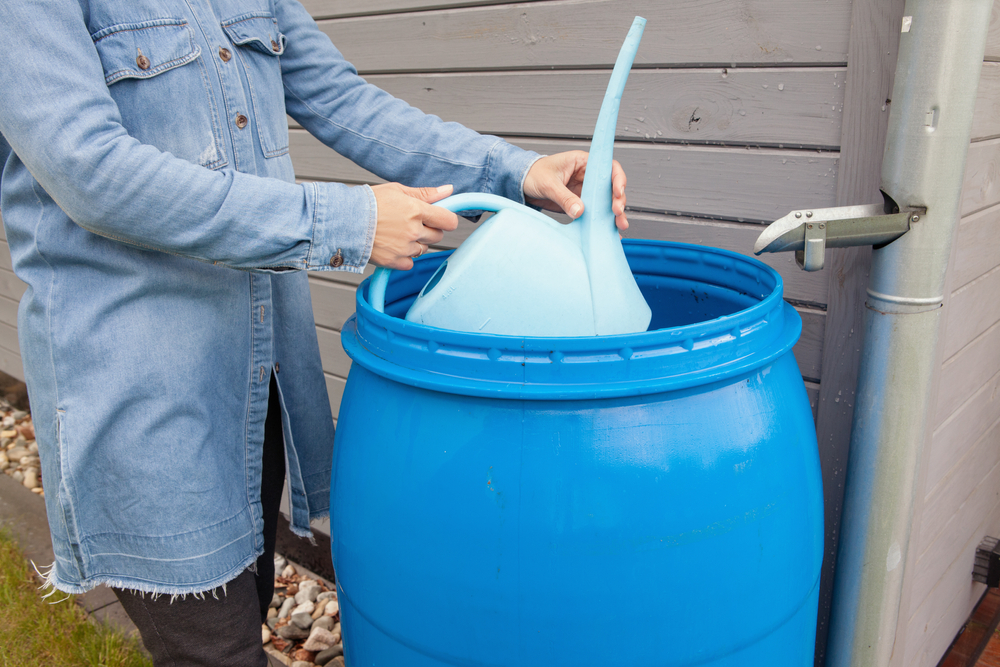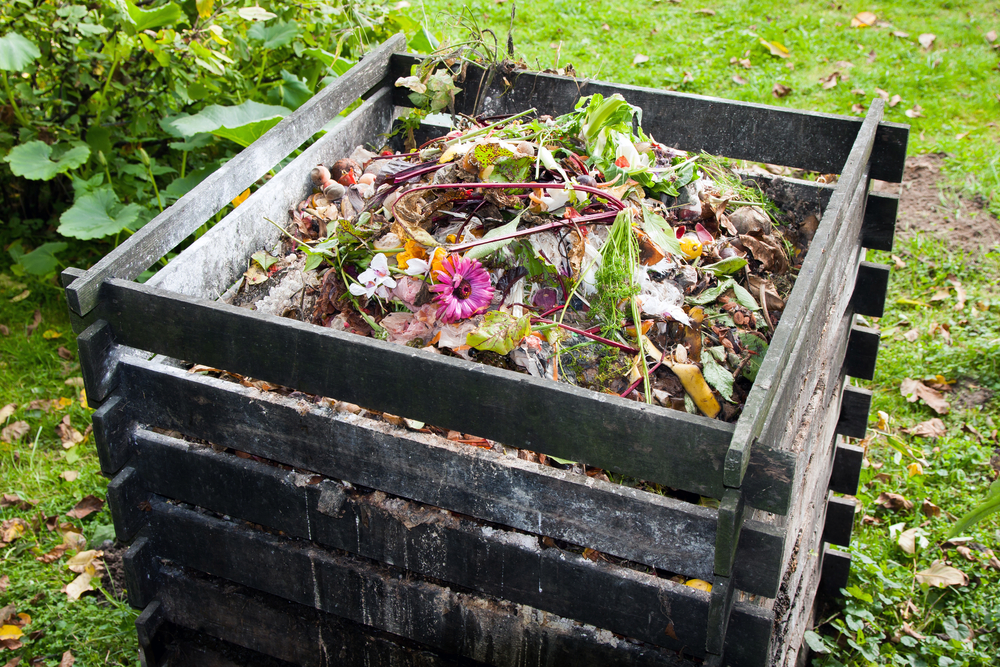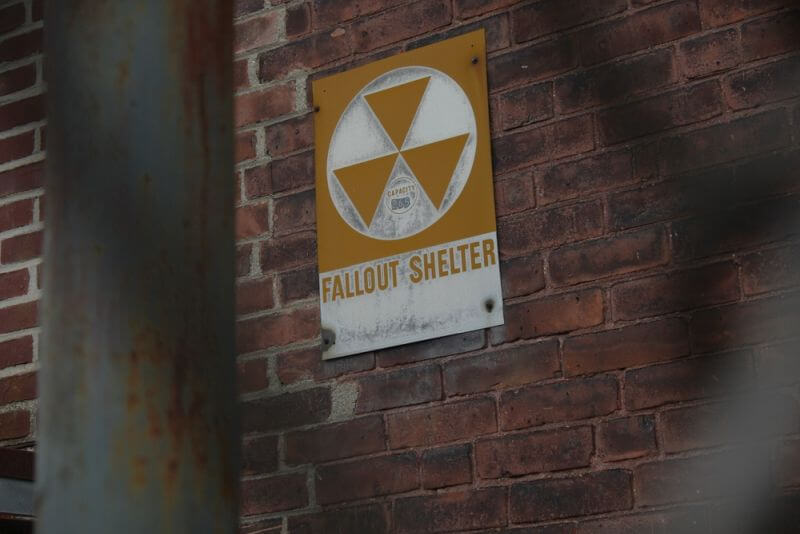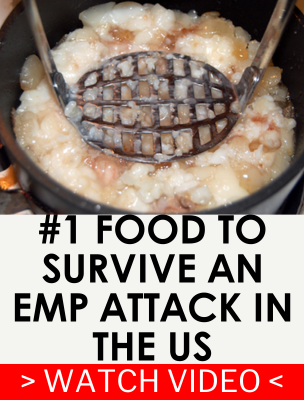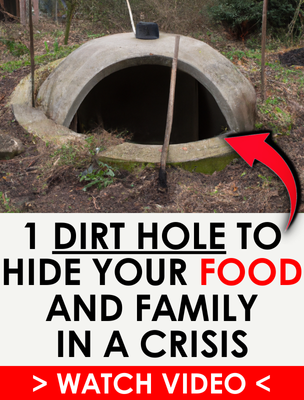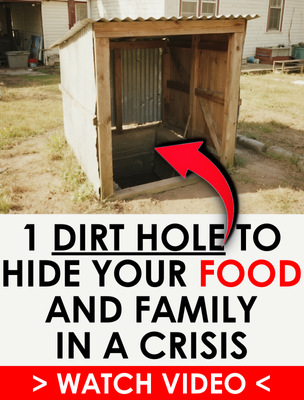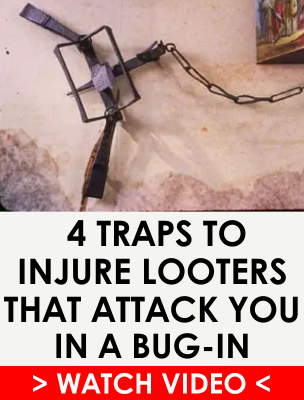When you spend a lot of time stocking and prepping, organization is key. But, it’s easy to get overwhelmed with clutter when you’re trying to be as prepared as possible. There are some items around your home that you might not need, and even some things that could be compromising your safety.
There’s no “bad” time to get rid of clutter and choose to get more organized. But, spring is a great time to start. The weather is nicer, you can spend more time taking care of things inside and out, and it can signify a “fresh” start in more ways than one.
With that in mind, let’s dig a little deeper into how you can use this season to optimize your homestead’s safety by cleaning up things that are no longer beneficial to you. We’ll talk about safely getting rid of certain items, rethinking your stockpile, and a few spring cleaning hacks that will make your life easier.
Safely Getting Rid of Items
Far too often, people leave certain items on their property because they aren’t sure how to get rid of them safely and effectively. Unfortunately, some of those items could be dangerous. For example, an inoperable car that’s been sitting in your driveway or yard for months might be an eyesore, but it could also be leaking fluid. Or, it could be a threat if you have any children at home who get curious about it and try to explore under the hood.
Thankfully, there are safe ways to get rid of old vehicles without too much stress. Some of the best options include:
- Selling it independently
- Trading it in at a dealership
- Finding online traders
- Donating it to charity
- Contacting local junkyards
Even if the car doesn’t run, some people might be interested in using certain parts. Do some research and don’t be afraid to try different outlets. Chances are, there will be more interest than you might think.
Other items that could potentially be dangerous include old chemical containers, cleaning supplies, batteries, or even electronics. If you have any hazardous household materials laying around, take them to a local Household Hazardous Waste collection site. Never dump them down the drain or throw them in your garbage. If they get sent to the dump, they could seep into the ground and contaminate the local water supply.
The Benefits of Decluttering
If you’re not feeling motivated to clean up this spring, consider some of the benefits. First, it gives you a sense of control. That can boost your mental health and reduce stress, especially if you have a large stockpile to keep track of or you simply want to make sure your family is safe and healthy.
It’s also intentional and somewhat ritualistic. That can also reduce stress and improve your mood. Some of the additional benefits of decluttering and freeing up your space include:
- Improved concentration
- Better sleep
- Improved lifestyle
- Reduced chances of pests
- Less dust, mold, and mildew
Decluttering can also keep you safer in your home by reducing the risk of a house fire. One of the common causes of house fires is heating equipment. If you have too much “stuff” surrounding your fireplace, furnace, or any other type of heating element, it could very easily catch on fire.
Even if your home is relatively clean, the decluttering mindset can remind you to keep your heating systems properly maintained, and to clear out your chimney at least once a year to prevent a creosote buildup.
Performing a Home Safety Check
Speaking of keeping your heating systems maintained, spring is a great time to check your whole house for maintenance issues. Simple cleaning steps can make a big difference when it comes to keeping things safe. For example, vacuuming out your dryer vents once a year can reduce the risk of a fire. Checking the batteries in your smoke alarms can ensure your family stays safe if there is a fire.
Other maintenance items might not pose immediate safety threats, but they’re still important when it comes to the health and wellness of your family. Things like making sure your doors and windows are properly sealed, especially after a harsh winter, will keep your utility bills down while also keeping things like dust and pollen out of your house. If you have a family member with allergies or respiratory issues, that’s hugely important for your air quality.
Cleaning out your gutters and making sure your sump pumps are working will help to prevent standing water and flooding in and around your home. Take an afternoon to get on a ladder and remove leaves and debris. It’s a small chore that will make a big difference when that first spring rainstorm hits. If your basement or garage floods, the damage could be costly and stressful – especially if water damages your stockpile of emergency supplies or increases the risk of mold and mildew in your home.
Keeping Pests Away
Another major benefit of spring cleaning is reducing the risks of pests and rodents in your home. The world seems to come to life in the spring, but that means mice, bugs, and more are on the move – and they’re hungry!
One of the best ways to keep pests out of your home is by cleaning your kitchen. Toss out any expired nonperishable food from the pantry. Take everything else out, wipe down your cupboards and cabinets, and make sure no boxes or bags have holes. Even the smallest crumbs can attract pests into your home. Additionally, make sure your garbage bin is properly closed.
Outside, spring is the best time to start a garden. Growing your own vegetables and herbs is a fantastic way to feed your family and boost your self-reliance. The last thing you want is for rodents and bugs to destroy your crops. Keep them away by:
- Cleaning up leaves and vines from the ground where pests can make homes
- Keeping your grass cut short
- Avoid leaving garbage or food around your yard
- Keeping your compost barrels locked tightly
- Using mint or other deterrent plants to keep rodents away
Spring cleaning isn’t just for your home interior. The cleaner you keep your yard, the less likely it will be for bugs and rodents to find a safe place to make a home. Your garden will thank you for tidying up your landscaping!
Spring Cleaning Hacks
We’ve talked about some of the benefits of spring cleaning, but if you make a list of all of the projects you want to tackle, it can feel a little overwhelming. First, don’t assume you have to do everything at once. Again, there’s no “bad” time to clean things up. You can keep decluttering throughout the year. But, if you want to get a jumpstart on things, consider using a few cleaning hacks that can make your life easier.
Some of the best “small” home cleaning hacks that can make a big difference in your daily life include:
- Cleaning the dishwasher with baking soda and vinegar
- Descaling your coffee maker with vinegar
- Steam cleaning your microwave with water
- Scrubbing your cast iron skillets with sea salt
- Using lemons to remove water stains from faucets
- Tossing citrus peels in your garbage disposal
We could go on for hours with helpful cleaning hacks, but you should be seeing a pattern here. Most things can be done using natural ingredients or things you already have around your house. While some things require heavy-duty cleaners and chemicals, try to “go natural” as often as possible. Doing so will reduce your dependency on commercial cleaners and will keep your home safer since you won’t have those chemicals sitting around where kids or pets could have access to them.
Rethinking Your Stockpile
Many preppers have a separate stockpile location. Maybe it’s in your basement, a shed, or the garage. Now is a perfect time to take a look at your existing stockpile and think about how you want to move forward for the year.
First, get things organized. It’s not uncommon for people to add to their stockpiles in the fall after harvesting crops from the garden and canning vegetables, soups, and sauces. Check the dates on all of your homemade items and determine what’s still good and what should either be used right away or thrown out.
Once you have an organized area, you can think about what needs to be restocked for both short-term and long-term preparations. Consider putting together a checklist of things you’ll need for a year, five years, etc. Things like first aid supplies, water filter cartridges, and fuel for heating will always be important and you can really never have too much. Other items, like medicines and batteries, might have less of a shelf life, and may need to be replenished every year or two.
Spring cleaning can get you in the right mindset to keep your family safe and prepared for anything. Keep these tips in mind to optimize your homestead’s safety, inside and out. You might find that once you get started, you’ll be motivated to keep things clean and decluttered throughout the year.



